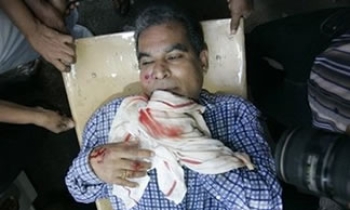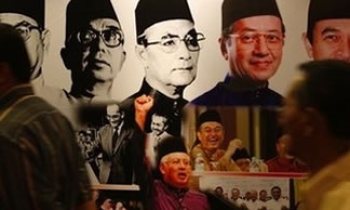A group of soldiers, accompanied by police agents, a prosecutor and a representative from the transport and communications ministry burst into the headquarters of a Peruvian radio station, cancelled its broadcasting signal and seized all of its equipment.
The incident took place on November 12 in Tacna, southern Peru, which was declared to be in a state of emergency on November 4 after the region's residents began a violent protest against the passage of a new mining royalties law. Two army tanks were left parked outside the headquarters of the station, Radio Caplina, the Lima-based Instituto Prensa y Sociedad (IPYS) has reported.
The station's legal advisor, Henry Portugal, told IPYS that the actions against Radio Caplina could be in retaliation for the fact that the station has allowed the region's residents to express themselves live on air to complain about the distribution of mining royalties.
According to the Transport and Communications Ministry (Ministerio de Transportes y Comunicaciones, MTC), Radio Caplina was closed down after it was confirmed that it was operating without a licence. Portugal denied this and said that the station did defaulted on its payment of the fee for use of its radio frequency, but this had happened because MTC never confirmed how much it had to pay. Portugal went on to explain that the station's representatives had presented a request for reconsideration in September that never received a response.
Radio Caplina journalists Carlos Chávez, Carlos Yánez and Mario Chipana told IPYS that they gained access to an intelligence report that gave orders for them to be followed to verify if they had committed crimes related to incitement to violence and acts against public order during their coverage. They said that the prosecutor for prevention of crimes, José Luis Mega Pilco, threatened to report them for having committed these crimes. They insisted that they carried out their coverage in an independent and plural manner, and that they have never incited violence.









